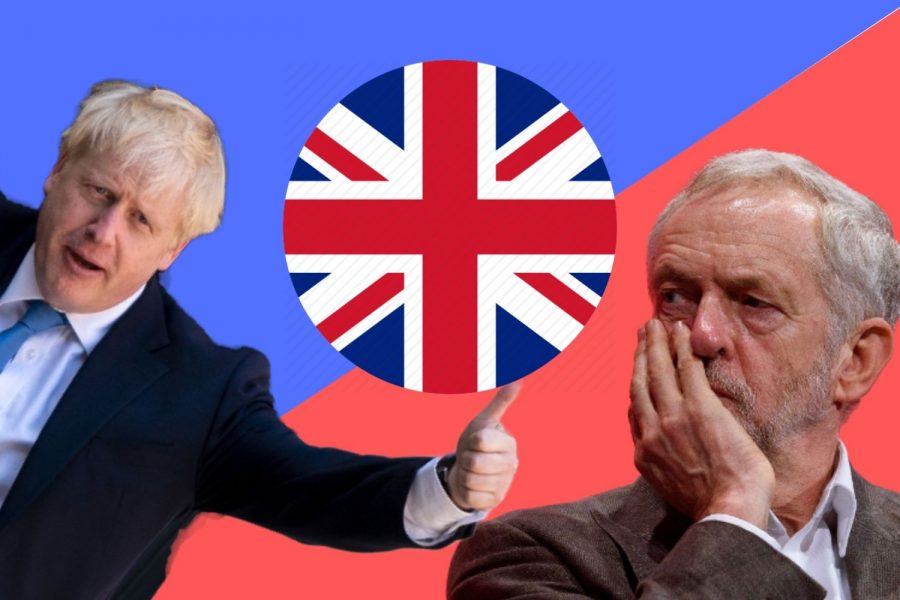Conservatives win big as Labour falters in the British elections.
The Conservative victory in the United Kingdom has thrown the nation into uncertainty, and the opposition into a frenzy.
Tensions were high in Britain following the call for a snap election by Prime Minister Boris Johnson. Following years of failure on the passage of Brexit, Johnson opted to risk a new election in an effort to form a majority government as opposed to the ineffective former minority government.
Following the closing of polling stations across the United Kingdom, it appears that Johnson’s gamble has paid off and he has ended up with a substantial majority government which signals that Johnson’s Brexit deal will likely pass following the formation of the new conservative government. For conservatives and Brexiteers, the night was a huge success with a Brexit practically being confirmed in 2020. For liberals and leftists, the night was an absolute disaster ultimately culminating with Labour leader Jeremy Corbyn stepping down as party leader of the Labour party.
Many political analysts have criticized the Labour party and Jeremy Corbyn for embracing a far-left platform throughout the campaign and blamed that leftist populism on their loss. This is largely unfounded as Labour ran on the virtually same platform in the 2017 parliamentary elections and forced a hung parliament ending the conservative majority of Theresa May, with a socialist platform. The Labour party did a good job throughout the election process to focus on saving the UK’s National Healthcare Service, or NHS, which Jeremy Corbyn, the leader of the Labour party, claimed would be potentially lost in a Conservative Brexit deal. Where Corbyn failed, however, was to take a proper stance on Brexit.
The Liberal Democrats, a center-left party, embraced a platform of forcing another referendum no matter what, effectively becoming the fierce anti-Brexit party. The Conservatives under Johnson’s leadership made themselves out to be the only way for Brexit to actually pass and the gridlock to end in the national government, something which, while true under a majority government, would end up with a half baked Brexit deal. Labour, however, refused to choose a side and announced they would both have another referendum on the Brexit question and create a Brexit deal that would not sell off the NHS to the United States nor establish a hard border across the Irish Strait, between Ireland and the United Kingdom.
This fence-sitting from Labour essentially cost them the election as Brexit was a critical issue to most British people with many preferring the hard positions of the Liberal and Conservative parties. Had Labour taken a stronger stance, they could have, with effort, acquired the Liberal Democrat and Conservative votes they needed to, at the very least, force a hung parliament.
This brings us to another major reason why the Conservatives won the seats they needed to gain a majority: the Liberal Democrats. In many areas across the country, Labour and the Tories were head-to-head, but it was the Liberal Democrats that ate up the Labour support and allowed the Tories to take many of Labour’s contested seats. Had the Tories also had a significant party eating their supporting base this would not have been a significant problem for Labour, however, the fact that Nigel Farage earlier this year announced that the Brexit party would not contest Tory seats meant that the conservatives essentially were able to consolidate the conservative vote while the left wing of the country was extremely divided. This coupled with the lack of a position from Labour on Brexit is what ultimately allowed the Conservatives to win their majority, this was neither a right wing wave nor a response to socialism, unlike the event-based hypotheses many seem to throw about.
So what happens now? Johnson and the Conservatives taking the British parliament means that Brexit will most likely go through, meaning several things for both the future of the United Kingdom and the future of the world at large. For one, the Brexit proposed by Johnson, the plan that will now most likely pass under his majority government, established Northern Ireland as a de facto part of the European Union for some time while the mainland would remain completely separate from the Union. This means that tensions will soon rise between the Northern Ireland government who has more to gain from remaining in the EU and the mainland British government.
At the same time Scotland, which voted heavily for Labour, has expressed their desire to leave the United Kingdom if a conservative government forces Johnson’s Brexit, an event likely to occur under the new government. Whether Northern Ireland or Scotland will actually attempt to break from the United Kingdom is still up in the air, but the economic and socio-political consequences of any break-up of the United Kingdom would be felt across the world. The immediate effects of Brexit will also potentially hurt the United States; while investors preferred Johnson over Corbyn in the British elections, the disastrous inversion of the yield curve in Britain coupled with Britain leaving the European Union on potentially soured terms will most likely lead to a global recession. With the United States economy already shaky from our trade wars in China, the economic effects of Johnson’s Brexit stand to cause an economic downturn in the US.
The British elections may not directly affect the United States in the same way it will affect the people of the United Kingdom, but nevertheless, the new Conservative majority government and its Brexit deal will ripple across the world in unpredictable ways. What the United Kingdom has essentially done is that they have voted on putting faith in Johnson, faith that his Brexit deal will not destroy many of the institutions essential to the United Kingdom. Whether Johnson was worthy of that trust will ultimately be up to the hands of time.




darkstripe • Dec 13, 2019 at 9:54 am
disappointed by this, but not particularly surprised. I can’t say I have much faith in humans